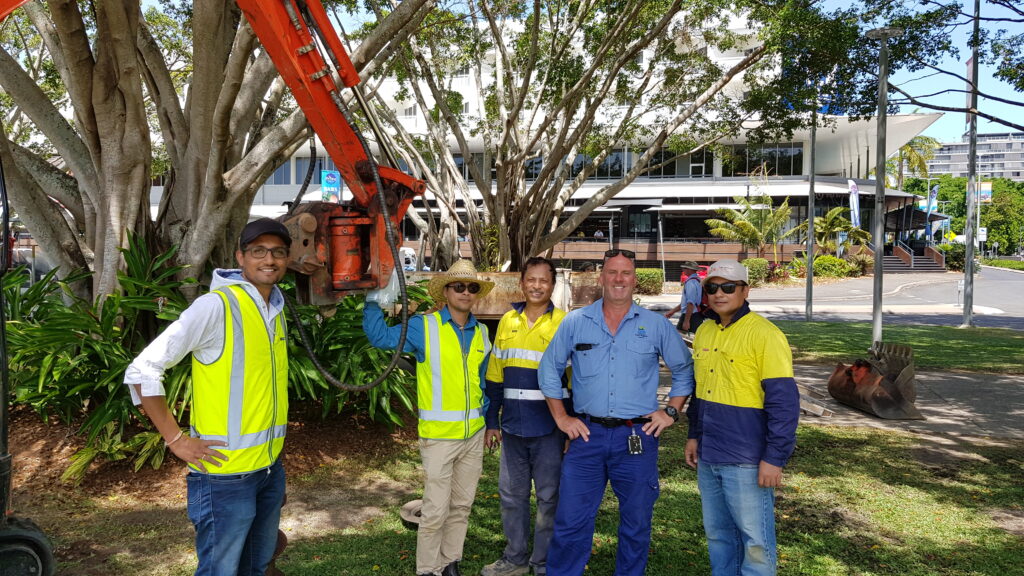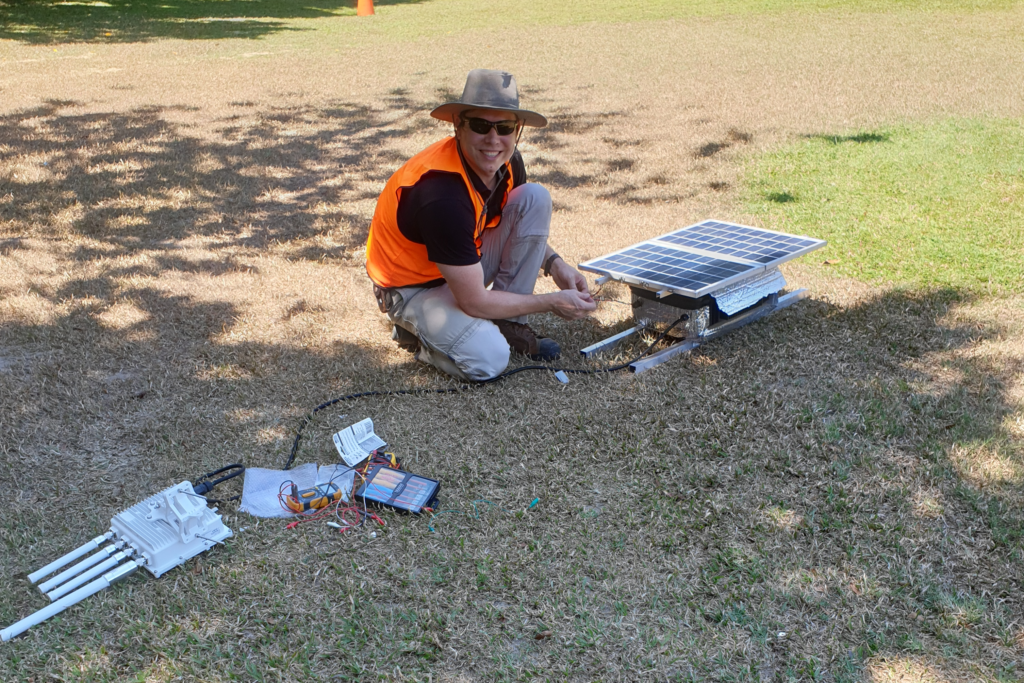
Reducing Deaths from Air Pollution
Exploreabout Reducing Deaths from Air Pollution
Researchers from Central Queensland University (CQU) worked alongside Cairns Regional Council and Rain Bird Australia to optimise urban irrigation using artificial intelligence, the ARDC Nectar Research Cloud and the Internet of Things, resulting in significant environmental benefits.
Through the use of smart irrigation, water usage and chemical runoff into waterways and the Great Barrier Reef was reduced. Urban parks in Cairns are now healthier, green spaces for the community to enjoy year round. This successful project marked the beginning of further research and commercial opportunities to improve irrigation for high-value sporting fields and agriculture.
Managing water and irrigation in urban parks can be challenging.
Parklands are exposed to many external factors including rainfall, winds, public traffic, and temperature and humidity variations.
Unfortunately, traditional irrigation systems generally operate by pre-set timers and can’t respond to actual weather conditions, soil moisture levels or the needs of plants.
In 2019, researchers from CQU and members of Cairns Regional Council started the Smart Urban Irrigation Project to address this problem, with funding from the Australian Government Smart Cities Collaboration Platform and Cairns Regional Council.
The project had a number of goals:

The solution involved creating an Internet of Things, with real-time monitoring sensors, software and cloud computing connected and exchanging data over the internet. Core data is collected from the city’s parks, including soil water content, soil properties and plant characteristics.
CQU researchers A/Prof Nanjappa Ashwath and Dr Biplob Ray said the data was channelled into a computer model designed by the team, which incorporated these and other variables that impact parkland conditions, including weather conditions and park management practices.
The ARDC Nectar Research Cloud played a key role in the project.
“We used Nectar to collect nearly two years’ of data from the sensors,” said Biplob, the CQU lead researcher on the project.
“We also used it to develop the AI [artificial intelligence] system and to present the data on a dashboard.”
The dashboard provides visual representation of the data and sends alerts based on real-time events including extremely low or high moisture content. The AI-powered “brain” of the system allows it to make accurate automatic decisions for the whole irrigation system, based on actual parkland conditions.
“Nectar has enabled us to store and present this project to end users [park managers]. It’s allowed us to create a controlled decision system to run a completely automated system of controlled irrigation,” Biplob said. “The data we’re storing on Nectar is invaluable.”

By deploying the smart irrigation system, the Cairns Regional Council has seen its sprinklers, which usually operate every day, turn off for 9 days every month. The project team calculated that the council is saving 583 litres of water per year per square metre of parkland. The smart irrigation system has proved to be a success, and the council is still using the technology to this day.
Along with creating greener parks, saving water and easing the workload of park employees, the reduction in water use means fewer chemicals are being transported into the Great Barrier Reef.
The Smart Urban Irrigation Project marked the beginning of more projects with enormous potential to optimise irrigation not only in urban parks, but also for agriculture and high-value sporting fields like cricket pitches and golf courses.
The project saw the CQU team develop an automated irrigation system based on smart sensors and AI, but one key piece of information was missing: how the sprinkler system was actually watering each session.
“When a sprinkler system is operating, the water can go right or left based on the wind, or it can reach more or less area depending on the water pressure on the day,” explained Biplob.
“Those variables currently can’t be measured because we don’t know what happened at a particular watering session at midnight. The only way to know is if the sprinkler could send that information back to the decision making system.”
As an extension of the project, the CQU team has filed an Australian patent application (#2021900891) for a new sprinkler system with two-way communication for improved remote decision making for irrigation.
The new technology could help irrigate high-value sporting fields remotely and efficiently. For example, the intelligent sprinkler system would help a curator know whether irrigation has made a cricket pitch better for spin or pace entirely remotely, which would be a significant efficiency improvement from the current practice which relies on a curator’s expert experience on the ground.
The CQU team is currently working with a Queensland Government manufacturing hub in Rockhampton to find a local manufacturer for the patented technology.
“The project wouldn’t be this successful without the support from the ARDC,” said Biplob.